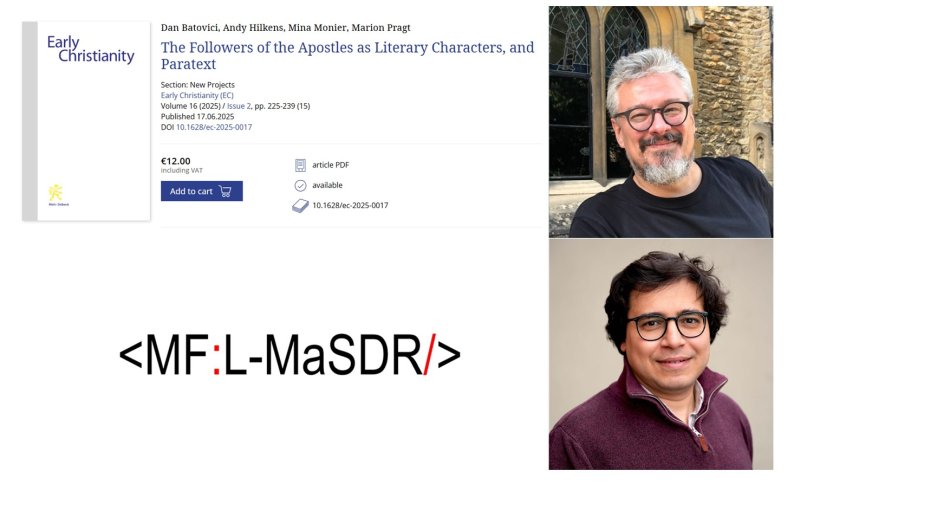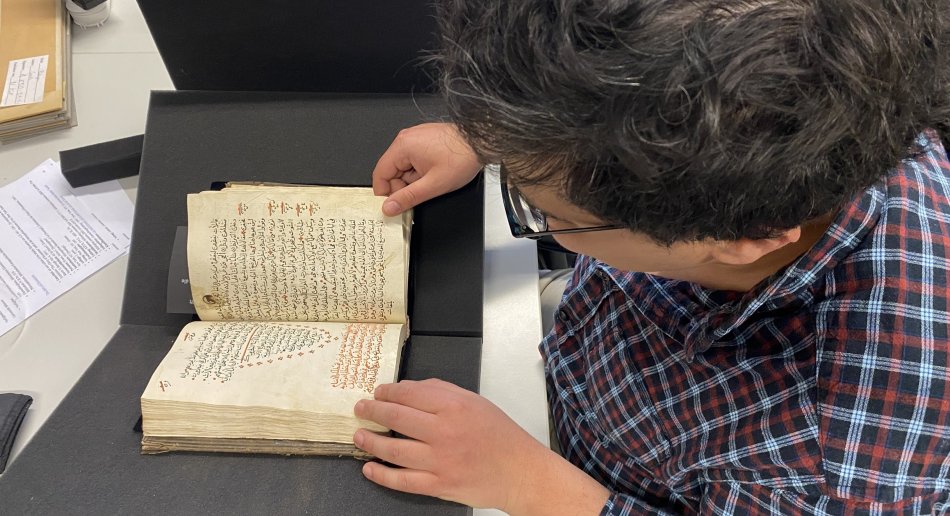
Mapping Early Christian Literature: A New Article Highlighting Collaboration with MF L-MaSDR
MF Lab for Manuscript Studies and Digital Research (MF L-MaSDR) participates in a major new research initiative - The Generative Authority (GenAut) Project - led by Dr. Dan Batovici. The GenAut project has recently been introduced in the journal Early Christianity (vol: 16. Issue: 2, 2025, Mohr Siebeck). The collaboration reflects the MF Lab’s growing engagement and role in international manuscript scholarship.
The GenAut Project aims to map the literary development and manuscript transmission of early Christian and late antique texts that center on figures closely associated with the apostles - such as Thecla of Iconium, Dionysius the Areopagite, and Clement of Rome. These figures, though not apostles themselves, became the main characters in a wide range of Christian literature spanning over a millennium, from the second century onward.
Traditionally, texts about these characters have been studied separately under categories like apocrypha, hagiography, apostolic fathers, or patristics. GenAut breaks new ground by treating them together as a literary network, exploring how perceived proximity to apostolic authority led to a remarkable flourishing of narratives across time, languages, and manuscript cultures. Through a bottom-up approach grounded in manuscript evidence, the project investigates why and how these "secondary" figures acquired long-lasting narrative authority.
As part of this ambitious endeavor, MF L-MaSDR is collaborating with Dr. Batovici to develop and maintain the GenAut project’s manuscript database. Under the direction of Dr. Mina Monier, our Lab contributes expertise in digital humanities and manuscript metadata, ensuring that the database meets rigorous scholarly and technical standards.
Each manuscript entry in the GenAut database is encoded in TEI/XML format and standardized according to the Dublin Core metadata schema. The records will include not only bibliographic and codicological data but also detailed notes on the works contained in the manuscript, apostolic connections, paratextual elements, folio references, language, and geographical transmission. Cross-references to major scholarly claves (e.g., CPG, BHG, BHL, NBG, e-Clavis) and critical editions will be embedded through hyperlinks. Importantly, the database is designed in line with FAIR data principles—Findable, Accessible, Interoperable, and Reusable—and will be hosted on servers supporting XQuery to facilitate open access and computational analysis.
This collaborative effort showcases how digital manuscript studies can intersect with broader historical and literary research. The GenAut database will be made available online early in the project to serve scholars working across manuscript traditions and early Christian literature.
We are proud to be part of this pioneering project and look forward to the insights it will bring into the literary careers of early Christian figures and the manuscripts that carried their stories through the centuries.
Aktuelt


